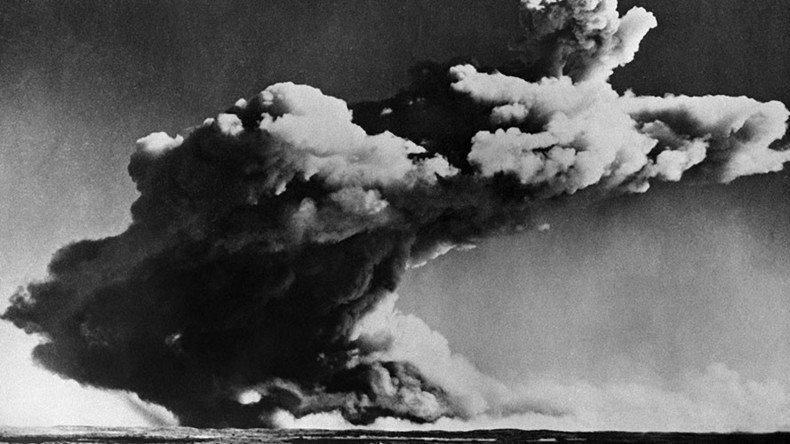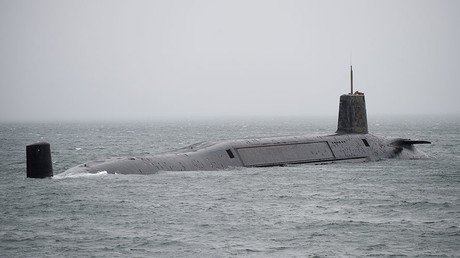‘Human guinea pigs’ of British nuclear testing in Australia win healthcare victory

Indigenous Australians who were exposed to extreme levels of radiation by British nuclear tests will finally have their healthcare costs covered by their government.
From 1952 to 1963, Britain tested atomic weapons at Maralinga and Emu Fields in South Australia and around Western Australia’s Monte Bello Islands, with Australia’s permission. The combined force of the weapons set off at Maralinga was double that of the bomb dropped on the Japanese city of Hiroshima in World War Two.
READ MORE: Australian atomic confessions
Many indigenous people were forced to move, but some refused to relocate and were subjected to severe levels of radiation. A royal commission has linked the testing to significant injuries and deformities including infertility, lung problems, skin defects, and cancer.
Documents show children born after the nuclear tests had tumors, cerebral palsy, missing bones, and heart disease. One child was reportedly born with no anus, and others with missing vertebrae and had duplicated bowels.
After decades of campaigning, those directly exposed to the radiation will now be eligible for a war veterans’ Gold Card, which covers most medical costs, Australian Veterans’ Affairs Minister Dan Tehan said.
“Subject to the passage of legislation, the measure will provide Gold Cards to indigenous people present at or near Maralinga, Emu Field or the Montebello Islands at the time of the British nuclear tests in the 1950s or 1960s.”
Gold Cards will also be offered to Australian veterans who were sent to Hiroshima and the British test sites.The new healthcare subsidy will form part of a £76 million ($98mn) investment in Australia’s federal budget.
The experiments, in which Aboriginal people were treated like “human guinea pigs” are a source of shame in southern and western Australia, according to campaigners. The country’s prime minister at the time, Robert Menzies, allowed access to Britain without consulting his cabinet, believing the deal would secure British protection in Australia in a nuclear world.
During the 1960s and 1970s, there were several large cleanup operations aimed at decontaminating the site. The indigenous communities say many locals involved in the effort also got sick.
Although the sites have long been declared safe, it was only in 2014 that the last of the land in Maralinga was finally handed back to the Aboriginal people. Most say they have no desire to return, however.
While South Australia’s Aboriginal Legal Rights Movement has welcomed the extension of healthcare, it questions why it has taken so long.
“We’re now 60 years after the event has occurred,” Cheryl Axleby, the group’s chief executive, told The Times.
“The outlay may not be as costly as it would have been say 20 or 30 years ago for the government – and those sorts of questions do stick out in my mind.”
People are seeking further compensation for health problems spanning generations.













